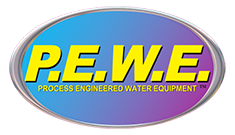 After oxygen, the next thing you need to survive is pure and clean water. Unfortunately, clean water isn’t available everywhere on earth. According to statistics, only 3% of the total water on earth is freshwater. This makes the wastewater treatment process crucial to our health.
After oxygen, the next thing you need to survive is pure and clean water. Unfortunately, clean water isn’t available everywhere on earth. According to statistics, only 3% of the total water on earth is freshwater. This makes the wastewater treatment process crucial to our health.
As such, the significance of managing wastewater is evident. Dirty water from human activity contains bacteria that causes infectious diseases like typhoid, cholera, trachoma, and more. Sadly, a lot of people still succumb to these waterborne diseases, even though those of us in the U.S. might not realize it.
So how do you prevent the spread of these diseases? By investing in quality water treatment systems like belt filter presses to ensure that water is safe for use at home.
But first, what is wastewater and why are industrial wastewater treatment systems important? Here is a simple guide to help you comprehend the finer details.
In simple terms, wastewater is that water which you’ve already used. If you drain the bathtub or flush the toilet, you’re getting rid of water which you’ve already used. However, your home isn’t the only source of wastewater. In fact, water runoff from storms also falls into this category. That’s because rainwater may carry chemicals or harmful substances from the roadway to the sewerage system. Such chemicals, if not treated properly, may end up in someone’s home and water supply.
Why Treat Wastewater?
Having a belt filter press isn’t all about securing clean water for your home. Rather, water treatment products play a vital role in different backgrounds.
1. Supports Fisheries
Any plant or creature that flourishes in the water requires fresh conditions to survive. Well, this is vital for fisheries that feed us. For these fisheries, clean water is vital for their reproduction.
2. Benefits the Aquatic Wildlife
According to the EPA, people dump over 1.2 gallons of untreated wastewater into water sources every year. This is a big issue for natural life in these territories. From the colossal lakes to the sea, the entire ecosystem depends on clean water. When untreated wastewater gets into water bodies, problems start to add up — the result being destruction of aquatic life.
3. Health Concerns
The belt filter press system and other wastewater treatment techniques like chemical dosing exist for various reasons. However, the primary one is to counteract medical problems that arise from untreated water. Such water will convey microscopic organisms and harmful illnesses. As such, it is important to clean it before utilizing.
Stages of The Wastewater Treatment Process
Now you’ve seen the benefits of treating wastewater. But how is it done? Well, there are three unmistakable stages involved in wastewater treatment strategies. These stages include:
Primary Wastewater Treatment
This stage seeks to maximize solids recovery. It does so through sedimentation of solid waste present in the water. Here, the wastewater goes through different tanks and belt filter press that differentiates water from pollutants. As the water passes through these tanks, the sludge is left in the digester.
Secondary Wastewater Treatment
After sludge dewatering, the wastewater moves into the next belt filter stage. Here, oxidation is done to expel extra sediments from waste water. Oxidation can be done in any of these three stages; aeration, bio-filtration and oxidation ponds.
Tertiary Wastewater Treatment
This is the last, yet the most fundamental, wastewater management process. It involves the expulsion of nitrates and phosphates from the water. Substances like sand and carbon activates are essential in the expulsion of nitrates and phosphates.
Yes, the earth is composed of 70% water. But only a small percentage of this water is available for direct human use. Despite this, the wastewater production is increasing without any regard for proper disposal. If you’re in doubt, check various water bodies and previous sandy beaches which are full of human trash. The poor disposal of wastewater pollutes various water sources leading to scarcity of this precious commodity. The only solution here is to reuse or recycle wastewater through a viable treatment process. It’s the only way to deal with future shortages of fresh water and decrease water pollution damage to the environment.


